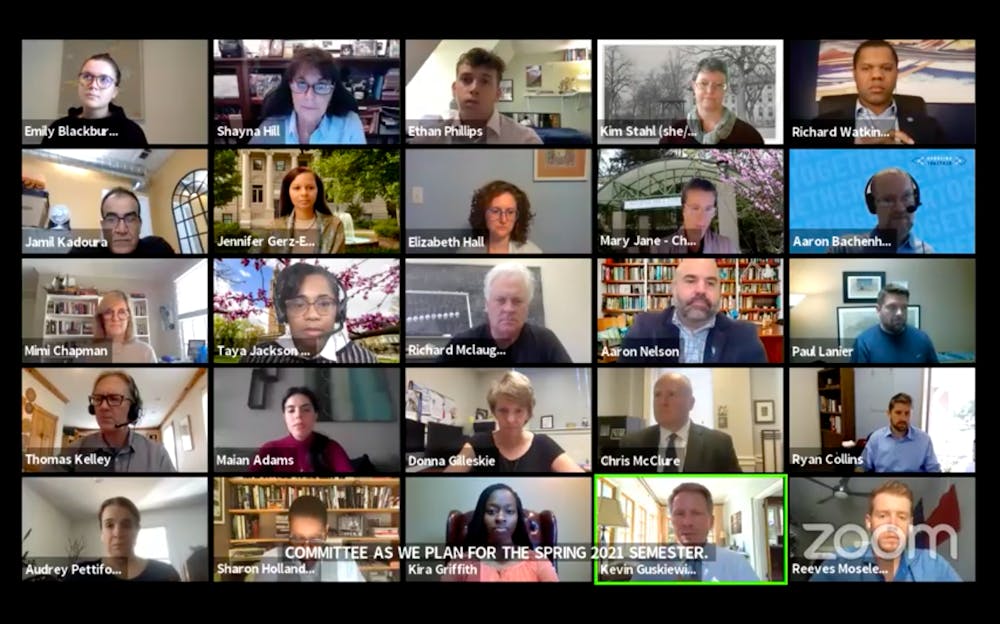The Campus & Community Advisory Committee — composed of students, faculty and community members who will give feedback on fall reopening and input on spring planning — met for the first time Tuesday. Selected by Chancellor Kevin Guskiewicz, the Committee was announced last week in a formal notice to the campus community.
The focus of the meeting was to identify the Committee’s purpose and the current state of COVID-19 research. The Committee has 26 members and three co-chairs from different groups across campus, according to the formal notice.
“My charge to you today is to examine how we can provide the best Carolina experience to as many students as possible with the safety and wellbeing of our campus community as our top priority,” Guskiewicz said.
In his introduction, Guskiewicz said final decisions would still rest with the University’s leadership, in consultation with the Board of Trustees and the UNC System Board of Governors.
Breaking down the Committee
The three University groups directly working with senior leaders are divided into the Committee, Content Experts — who will advise decision-makers on the most current science of COVID-19 — and the Roadmap Implementation Team, which will facilitate the reopening plan’s execution.
The Campus & Community Advisory’s three co-chairs are Mimi Chapman, chairperson of the faculty, Shayna Hill, chairperson of the Employee Forum and Reeves Moseley, student body president.
“As we work through the planning process for this spring semester, my sincere hope is that staff voices will be heard and considered as plans develop,” Hill said during her remarks. “I appreciate the opportunity to serve in this capacity.”
Chapman reflected on the fall 2020 semester, during which the University took an off-ramp, de-densifying its residence halls and shifting fully online.



